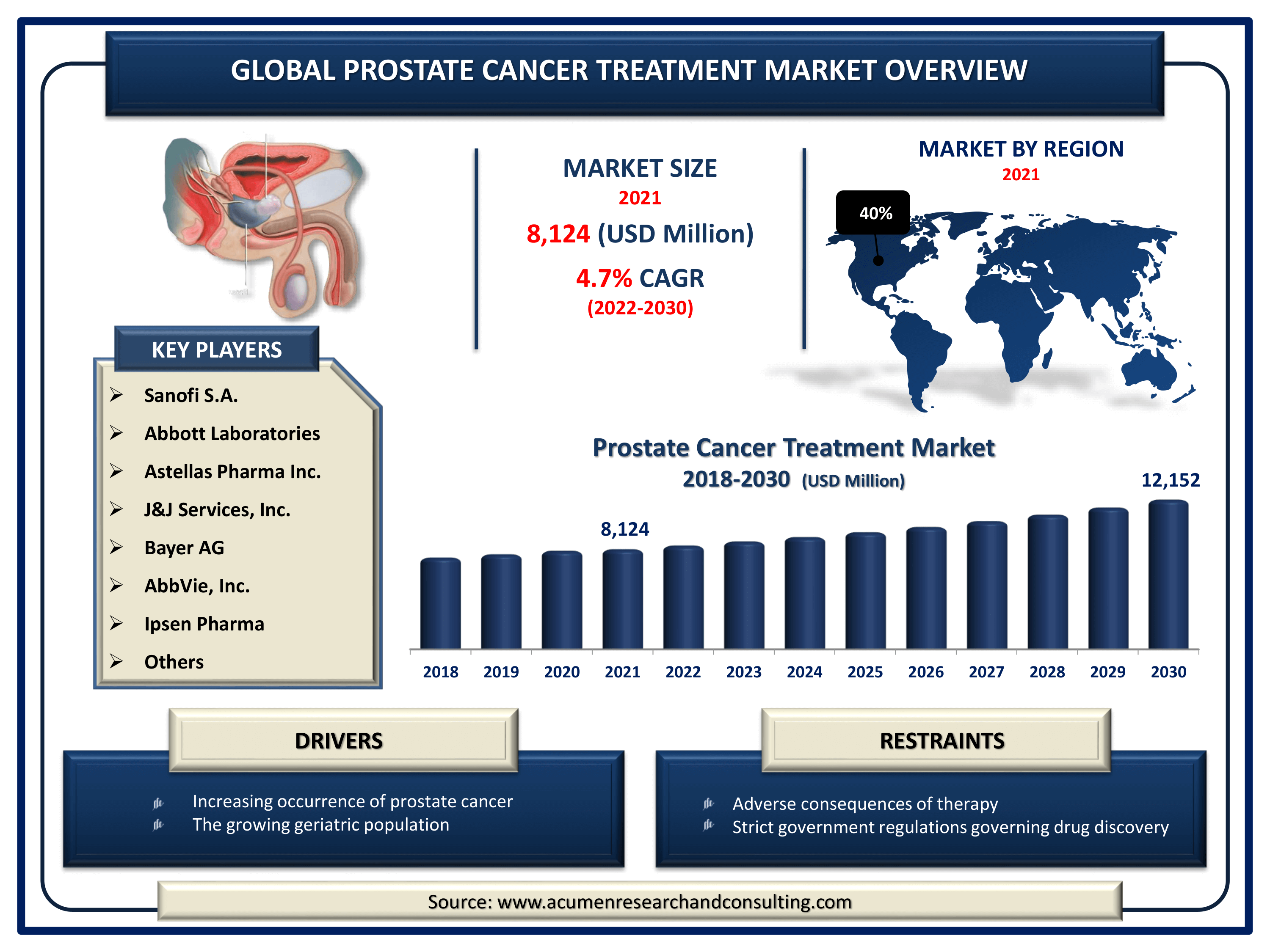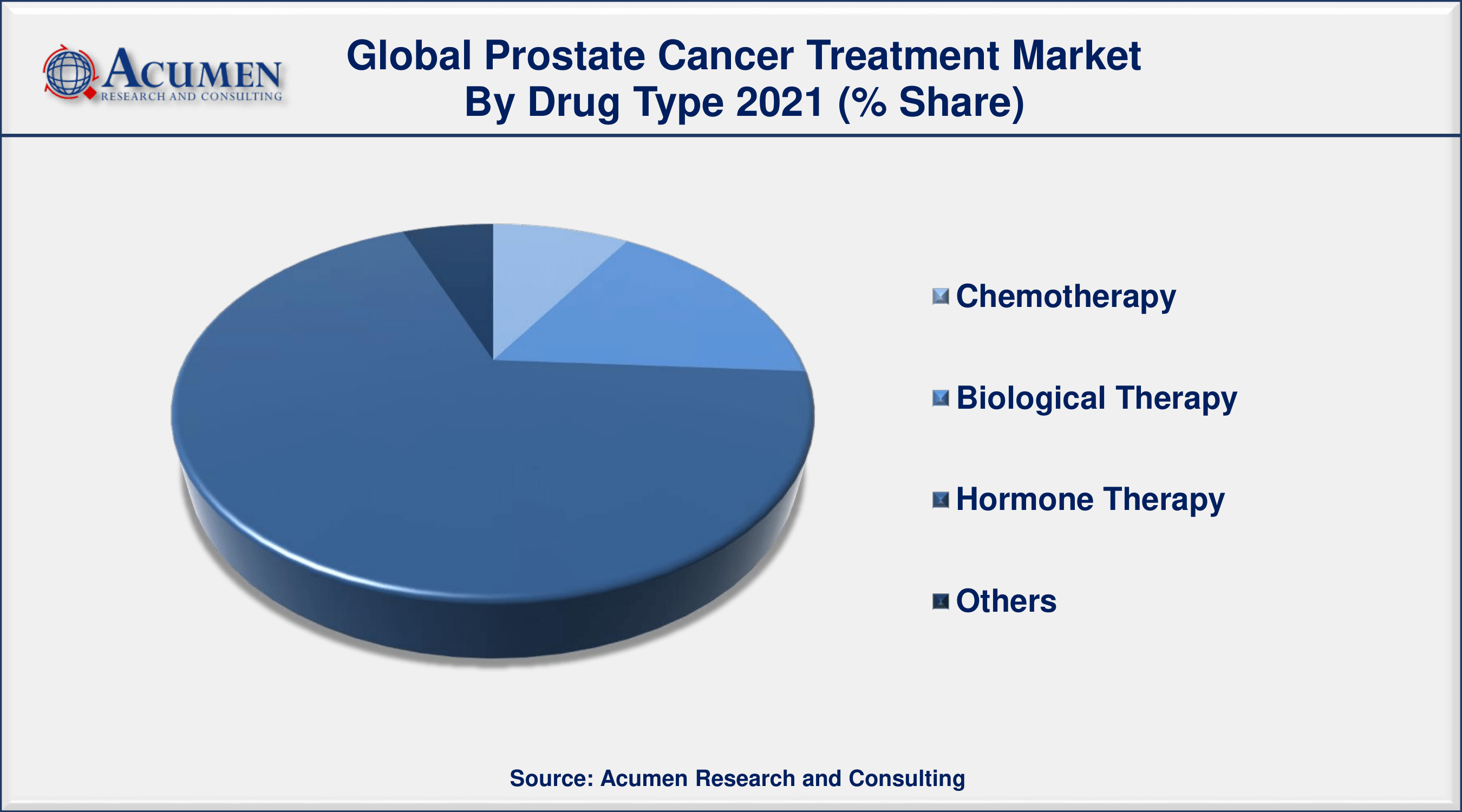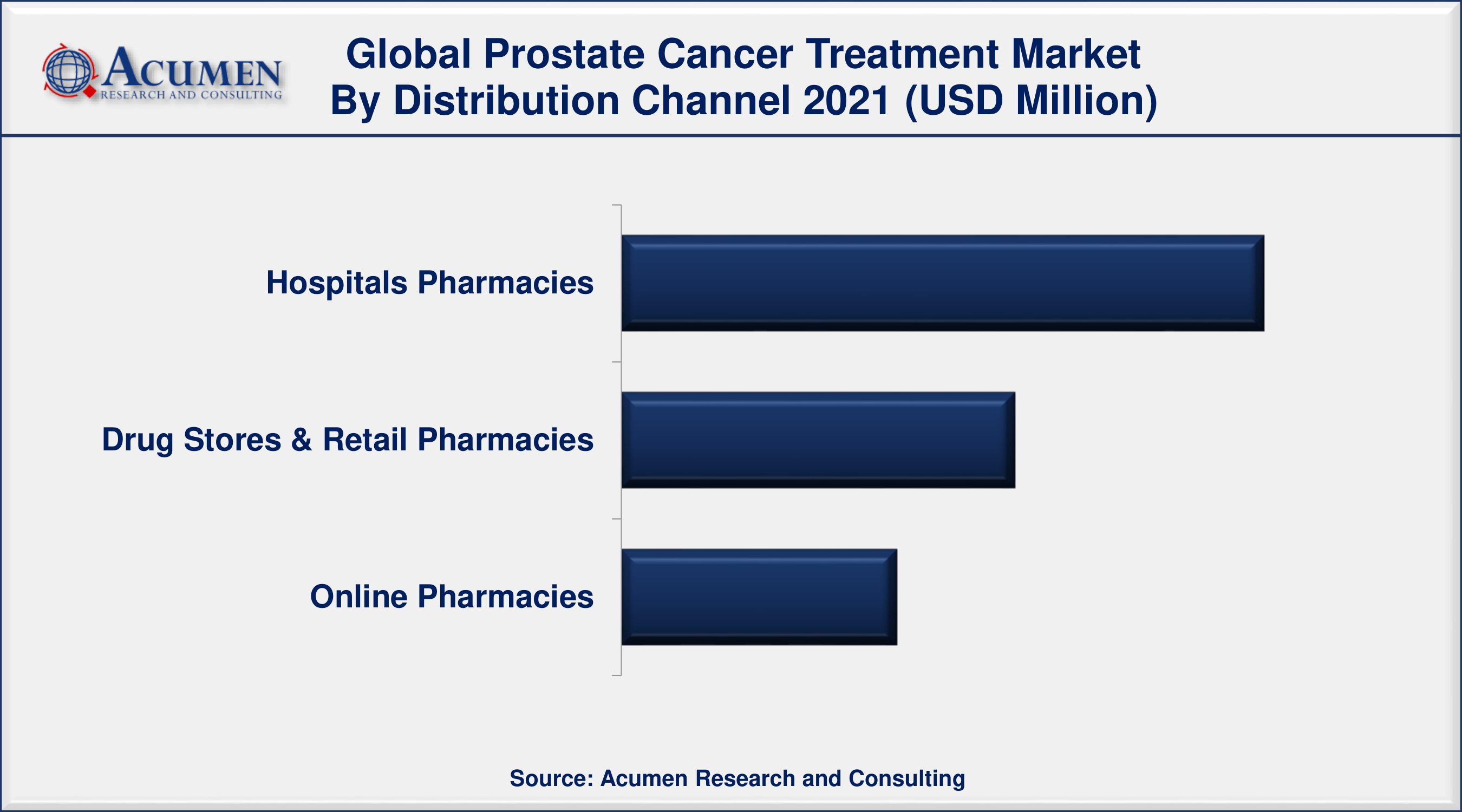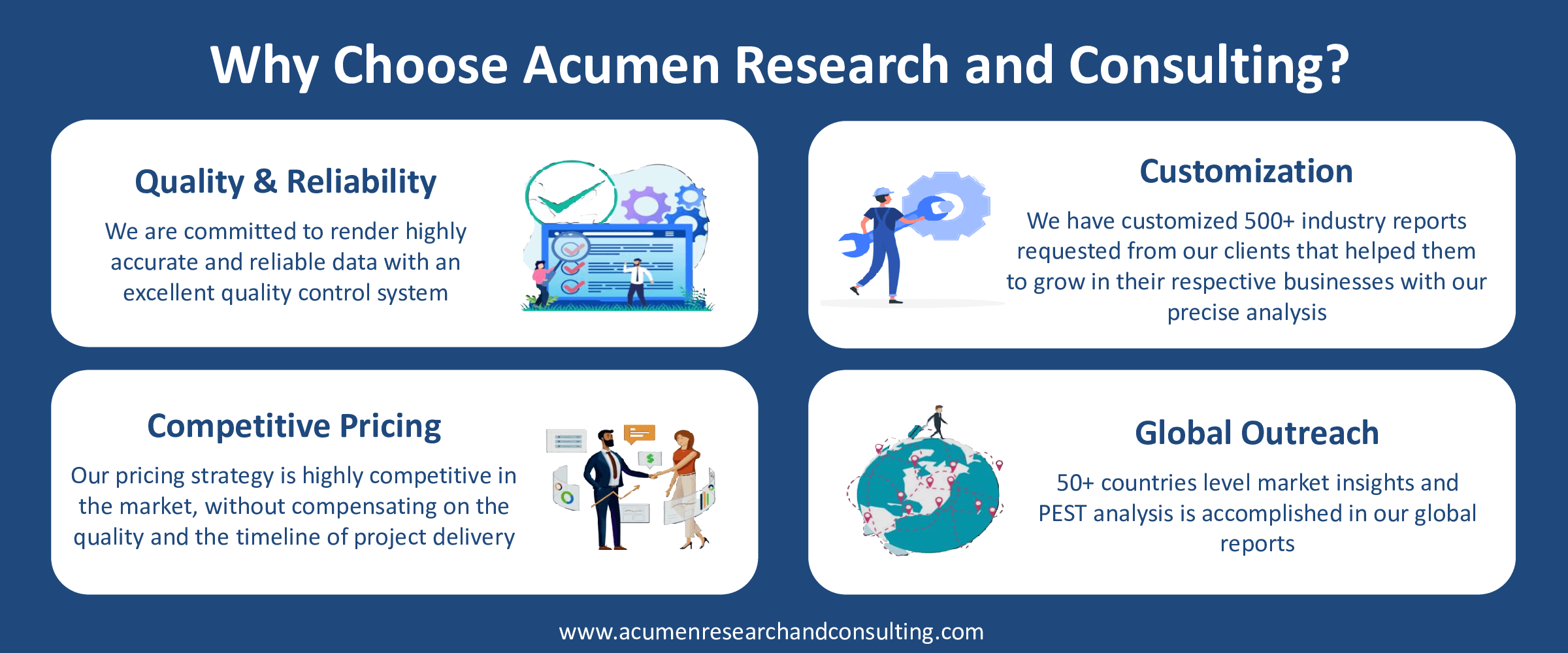Prostate Cancer Treatment Market Size - Global Industry, Share, Analysis, Trends and Forecast 2022 - 2030
Published :
Report ID:
Pages :
Format :
The Global Prostate Cancer Treatment Market Size accounted for USD 8,124 Million in 2021 and is estimated to achieve a market size of USD 12,152 Million by 2030 growing at a CAGR of 4.7% from 2022 to 2030. The rise in the elderly population, growth in the incidence of prostate cancer, a spike in generic products, and an increase in public knowledge of prostate cancer therapy are the key factors driving global market expansion. Furthermore, increased R&D expenditure by pharmaceutical manufacturers, strong emerging pipeline medications, and the emergence of new prostate cancer treatments will boost the prostate cancer treatment market value in the approaching years.

Prostate Cancer Treatment Market Report Key Highlights
- Global prostate cancer treatment market value is estimated to expand by USD 12,152 million by 2030, with a 4.7% CAGR from 2022 to 2030
- North America prostate cancer treatment market accounting for nearly 40% of the total market share in 2021
- According to the American Cancer Society, more than 3.1 million men in the US have been diagnosed with prostate cancer
- Asia-Pacific region would exhibit the highest CAGR of 6% during 2022-2030.
- Among distribution channels, hospital pharmacies segment captured around 48% market share in 2021
- According to the study, hormone therapy can decrease the tumor in 85% to 90% of cases of advanced prostate cancer
Prostate cancer is the most common cancer among men after skin cancer. Prostate cancer is a disease in which malignant (cancer) cells form in the tissues of the prostate. Signs of prostate cancer include a weak flow of urine or frequent urination. Other than skin cancer, prostate cancer is the most common cancer in American men. As per the estimates revealed by the American Cancer Society, prostate cancer in the US for 2021 is about 248,530 new cases registered for prostate cancer. However, about 34,130 deaths are registered from prostate cancer. Additionally, prostate cancer is the second leading cause of cancer death in American men, behind only lung cancer. About 1 man in 41 will die of prostate cancer according to the estimates released by the American Cancer Society.
Global Prostate Cancer Treatment Market Dynamics
Market Drivers
- Increasing occurrence of prostate cancer and cardiovascular diseases
- The growing geriatric population
- Rising government spending on healthcare
- Increasing efforts to raise awareness from public and private organizations
Market Restraints
- Adverse consequences of therapy and medications
- Strict government regulations governing drug discovery
Market Opportunities
- Emerging pipeline medications with high potential
- Growing awareness regarding treatment
Prostate Cancer Treatment Market Report Coverage
| Market | Prostate Cancer Treatment Market |
| Prostate Cancer Treatment Market Size 2021 | USD 8,124 Million |
| Prostate Cancer Treatment Market Forecast 2030 | USD 12,152 Million |
| Prostate Cancer Treatment Market CAGR During 2022 - 2030 | 4.7% |
| Prostate Cancer Treatment Market Analysis Period | 2018 - 2030 |
| Prostate Cancer Treatment Market Base Year | 2021 |
| Prostate Cancer Treatment Market Forecast Data | 2022 - 2030 |
| Segments Covered | By Drug Type, By Distribution Channel, And By Geography |
| Regional Scope | North America, Europe, Asia Pacific, Latin America, and Middle East & Africa |
| Key Companies Profiled | Dendreon Pharmaceuticals LLC., AstraZeneca plc, Johnson & Johnson Services, Inc., Sanofi S.A., Abbott Laboratories, Astellas Pharma Inc., Bristol-Myers Squibb Company, Bayer AG, AbbVie, Inc., and Ipsen Pharma. |
| Report Coverage |
Market Trends, Drivers, Restraints, Competitive Analysis, Player Profiling, Regulation Analysis |
What's New In Prostate Cancer Treatment?
Radiation is a common treatment for prostate cancer. It helps to damage tumor cells and causes them to die. As per Clinicaltrials.gov, the National Institutes of Health Clinical Center (CC) (National Cancer Institute (NCI) is conducting detailed imaging studies to overlook at the results of local radiation therapy for the treatment of prostate cancer. The radiation therapy is conducted on patients suffering from Prostatic Neoplasms and Prostate Cancer. The actual start date was recorded on November 2013 and the estimated completion date is February 2028.
Research And Development (R&D) Is Racing To Bolster Several Treatment Options
National Cancer Institute (NCI)-supported researchers are developing new imaging techniques that improve the diagnosis of recurrent prostate cancer. A protein called prostate-specific membrane antigen (PSMA) is found in large amounts and almost exclusively in prostate cells. Through a fusion of molecules that bind to PSMA to a compound used in positron emission tomography (PET) scan imaging, scientists are able to view tiny deposits of prostate cancer that are small in size to get detected by regular imaging. Additionally, American Society of Gene & Cell Therapy, Gene and cell therapies represent an exciting option for the treatment and prevention of prostate cancer. Currently, there are 157 clinical trials comprising gene therapies for prostate cancer and a staggering 1040 trials involving cell therapies. Moreover, the development of initial gene and cellular therapies is an emerging topic for the researchers that have come to light for prostate cancer through providing treatment options with hormonal or chemotherapy. For instance, byte (bi-specific antibody) therapy and chimeric antigen receptor therapy (CART) against the prostate-specific membrane antigen (PSMA). Prostate stem cell antigen is actively under investigation and radio-labeled lutein antibodies directed against PSMA have completed phase III trials and it represents to become mainstays of both imaging and treatment.
Rising Awareness Regarding Prostate Cancer Treatment Among The Population Is Having 100% Gains In The Forecast Period
As per the New Zealand Government, men and their families are able to make informed decisions and receive consistent support for the early detection and treatment of prostate cancer. This is achieved by greater access to information on prostate-specific antigen (PSA) testing. With strong support from the Health Committee for the early detection and treatment of prostate cancer, it has resulted in the decline of the cases registered due to prostate cancer. Evidence suggests that level of access to healthcare is associated with the quality of the outcome of prostate cancer. In February 2012, the Ministry appointed the Prostate Cancer Taskforce (the Taskforce) to support the development of the quality improvement program. The healthcare providers play a pivotal role in shaping the decision with men about checking for prostate cancer and the management of men with diagnosed prostate cancer. For the majority of men, general practitioners (GPs) are the first point of contact in the healthcare system. The outcome of the interaction determines whether men will have a PSA test coupled with influencing or referring to a urologist for a prostate biopsy.
Prostate Cancer Treatment Market Segmentation
The worldwide prostate cancer treatment market segmentation is based on the drug type, distribution channel, and geography.
Prostate Cancer Treatment Market By Drug Type
- Chemotherapy
- Biological Therapy
- Hormone Therapy
- Others

According to a prostate cancer treatment industry analysis, the hormone therapy segment would dominate the global market in 2021. Product approvals by authorized bodies, increasing demand for hormone therapy drugs, and availability of generic drugs coupled by pharmaceutical companies. According to the National Cancer Institute (NCI), several new approaches related to hormone therapy are developed for advanced or metastatic prostate cancer for clinical use. Over the course of time, many prostate cancers that originally respond to treatment with standard hormone therapy become resistant to time, resulting in castrate-resistant prostate cancer (CRPC). Currently, three newer drugs have shown to extend survival in men with CRPC. These involve Enzalutamide (Xtandi), Abiraterone (Zytiga), and Darolutamide (Nubeqa). These newer drugs block the action of hormones that drives CRPC. For instance, in May 2020, the Food and Drug Administration (FDA), approved "rucaparib". This is a new medication to treat some patients suffering from prostate cancer. Additionally, "olaparib" was approved by the FDA for certain metastatic prostate cancer that is less responsive to hormone therapy.
Prostate Cancer Treatment Market By Distribution Channel
- Hospitals Pharmacies
- Drug Stores & Retail Pharmacies
- Online Pharmacies

According to the prostate cancer treatment market forecast, the hospital pharmacies segment will contribute significantly to market growth during the predicted year. This is attributed to the presence of hospital pharmacies across the globe, the surge in the number of hospitalized prostate cancer patients, and the convenience offered by hospital pharmacies. It is witnessed that online pharmacies are the fastest growing segment in the forecast period due to rising awareness regarding online pharmacies, increasing number of internet users, and surging preference for online purchase of drugs over the traditional methods.
Prostate Cancer Treatment Market Regional Outlook
North America
- U.S.
- Canada
Europe
- U.K.
- Germany
- France
- Spain
- Rest of Europe
Latin America
- Mexico
- Brazil
- Rest of Latin America
Asia-Pacific
- India
- Japan
- China
- Australia
- South Korea
- Rest of Asia-Pacific
The Middle East & Africa (MEA)
- Gulf Cooperation Council (GCC)
- South Africa
- Rest of the Middle East & Africa
In The United States, 3,253,416 Men Had Diagnosed With Prostate Cancer In 2019
North America holds the dominating share of the growth of the prostate cancer treatment market. Rising awareness of the disease coupled with government initiatives, surging availability of treatment options for the ever-growing patient pool, and advancements in diagnosis of prostate cancer in patients are the factors that contribute to the fullest growth of the regional market of prostate cancer treatment. On the other hand, Asia-Pacific is expected to provide lucrative opportunities for the regional growth of the prostate cancer treatment market. The factors that support the APAC growth involve increasing investments in R&D activities, new developments in treatment options at the regional level, and new drug and treatment approvals by creating a strong pipeline are factors that contribute to the growth of the prostate cancer treatment market.
Prostate Cancer Treatment Market Players
Some of the top prostate cancer treatment market companies offered in the professional report include Dendreon Pharmaceuticals LLC., AstraZeneca plc, Johnson & Johnson Services, Inc., Sanofi S.A., Abbott Laboratories, Astellas Pharma Inc., Bristol-Myers Squibb Company, Bayer AG, AbbVie, Inc., and Ipsen Pharma.
Frequently Asked Questions
What is the size of global prostate cancer treatment market in 2021?
The estimated value of global prostate cancer treatment market in 2021 was accounted to be USD 8,124 Million.
What is the CAGR of global prostate cancer treatment market during forecast period of 2022 to 2030?
The projected CAGR prostate cancer treatment market during the analysis period of 2022 to 2030 is 4.7%.
Which are the key players operating in the market?
The prominent players of the global prostate cancer treatment market are Dendreon Pharmaceuticals LLC., AstraZeneca plc, Johnson & Johnson Services, Inc., Sanofi S.A., Abbott Laboratories, Astellas Pharma Inc., Bristol-Myers Squibb Company, Bayer AG, AbbVie, Inc., and Ipsen Pharma.
Which region held the dominating position in the global prostate cancer treatment market?
Asia-Pacific held the dominating prostate cancer treatment during the analysis period of 2022 to 2030.
Which region registered the fastest growing CAGR for the forecast period of 2022 to 2030?
North America region exhibited fastest growing CAGR for prostate cancer treatment during the analysis period of 2022 to 2030.
What are the current trends and dynamics in the global prostate cancer treatment market?
Increasing occurrence of prostate cancer and cardiovascular diseases, as well as growing geriatric population, drives the growth of global prostate cancer treatment market.
By drug type segment, which sub-segment held the maximum share?
Based on drug type, hormone therapy segment is expected to hold the maximum share prostate cancer treatment market.



